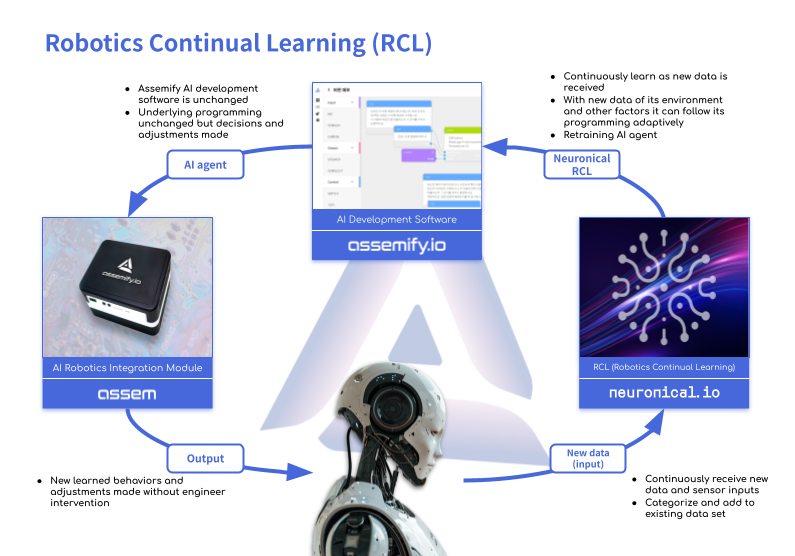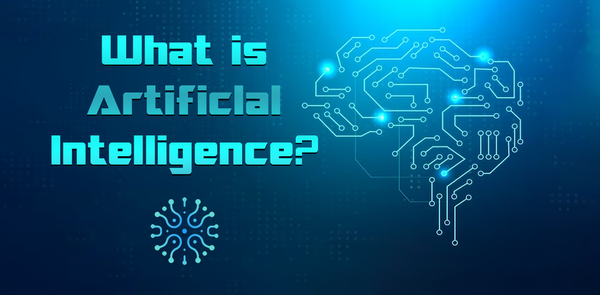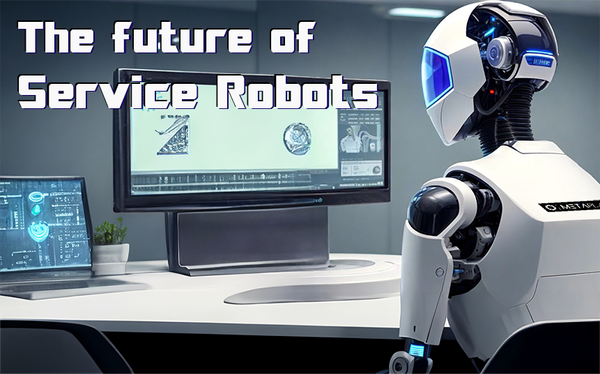What is Robotics Continual Learning? RCL/CL/ML
At Metaplad, we are dedicated to harnessing the power of RCL to develop the future of robots and innovative integration modules that empower robots to learn, adapt, and evolve in real-world environments

Other language(s): 한국어(Korean)
- Introduction
- RCL, CL and ML
- Robotics Continual Learning
- Continuous Learning
- Machine Learning
- Applications in Robotics
- Closing
Introduction: In the rapidly evolving landscape of robotics and Artificial Intelligence (AI), the integration of Continuous Learning (CL) and Machine Learning (ML) technologies has emerged as a game-changer. At Metaplad, we aim to be the forefront of developing integration modules that harness the potential of CL/ML to revolutionize robotics applications, what we call RCL (Robotics Continual Learning).
RCL,CL and ML:
Robotics Continual Learning (RCL) is a robotics industry specific trained Continuous Learning algorithm. Where traditional CL is programmed and shaped specifically for the robotics industry. As explained below, instead of taking a preset data set, RCL allows for the robot to build on its knowledge base with new dynamic data, coming in in real time, allowing it to adapt and be more personalized as well as other benefits.
Continuous Learning (CL) is a dynamic approach to AI that enables systems to adapt and evolve over time based on new data and experiences. Unlike traditional machine learning models that are trained on static datasets, CL systems continuously learn from real-time data streams, allowing them to improve performance and adapt to changing environments and inputs.
Machine Learning (ML) forms the foundation of CL, providing algorithms and techniques for extracting patterns and insights from data. ML algorithms enable robots to learn from experience, recognize patterns, make predictions, and optimize decision-making processes. By combining CL with ML, robots can acquire new knowledge, refine their behavior, and enhance their capabilities autonomously.
Applications in Robotics:
- Adaptive Behavior: RCL (CL/ML in robotics) enables robots to adapt their behavior and responses based on changing environmental conditions, user interactions, and task requirements. This adaptability is essential for robots deployed in dynamic and unpredictable environments, such as manufacturing facilities, warehouses, and healthcare settings.
- Real-time Decision Making: RCL empowers robots to make real-time decisions and adjustments based on incoming sensory data and feedback. This capability is invaluable for applications requiring rapid response times, such as autonomous vehicles, security surveillance, and emergency response systems.
- Personalized Interactions: RCL enables robots to personalize interactions and services based on individual preferences, behaviors, and past interactions. This personalization enhances user engagement and satisfaction in scenarios such as customer service, healthcare assistance, and educational support.
- Lifelong Learning: RCL facilitates lifelong learning in robots, allowing them to continually acquire new skills, adapt to evolving tasks, and improve performance over time. This lifelong learning capability is crucial for long-term autonomy and sustainability in robotics applications.
- Fault Detection and Recovery: RCL algorithms enable robots to detect faults, anomalies, and errors in their operations and take corrective actions autonomously. This proactive approach to fault detection and recovery enhances reliability, safety, and operational efficiency in robotics systems.
Closing Thoughts and Takeaways
The integration of Continuous Learning (CL) and Machine Learning (ML) into the robotics industry aka Robotics Continual Learning (RCL) represents a paradigm shift in robotics technology, unlocking new possibilities for autonomy, adaptability, and intelligence. At Metaplad, we are dedicated to harnessing the power of RCL to develop the future of robots and innovative integration modules that empower robots to learn, adapt, and evolve in real-world environments. With RCL-enabled robots, we are poised to accelerate AGI in robotics. Join us on this transformative journey towards intelligent AI robotics integration.





